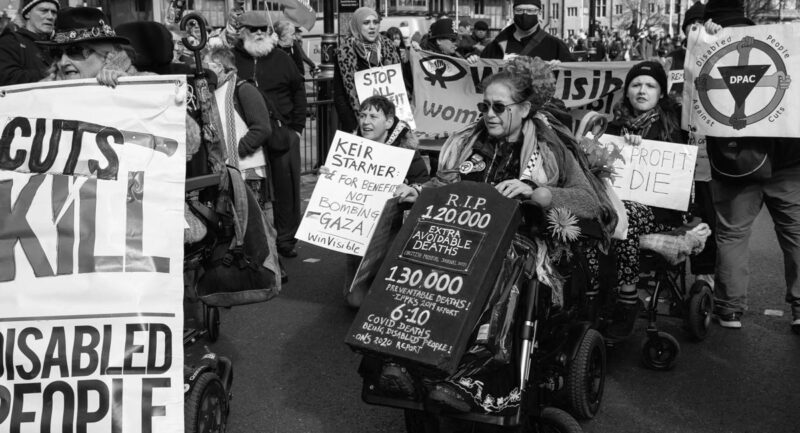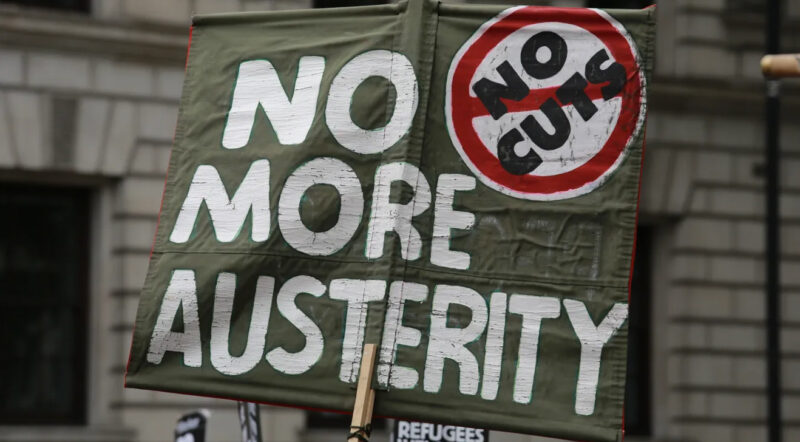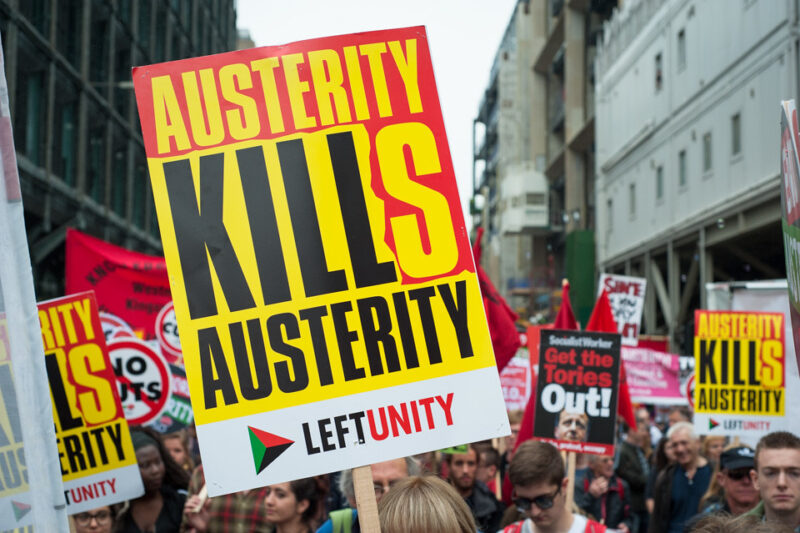Labour: shame on you for turning blue
 The new Blue Labour movement is a dangerous turn to the right, argues Luke Cooper
The new Blue Labour movement is a dangerous turn to the right, argues Luke Cooper
IT IS testament to the lack of real political debate inside the modern Labour Party that the Blue Labour phenomenon has caused quite a stir. It is also a sign of how desperately the party is trying to make headway to deliver an election victory in four years time.
At least it has stimulated a debate, one which tries to addresses ‘fundamentals’ about what Labour should be for. And it makes a change from the argument over how fast to cut public spending which has occupied the parliamentary party since Labour went into opposition.
Promoted by Labour peer Maurice Glasman, the movement started out as the brain child of a handful of MPs, peers and academics, but has since won the ear of party leader, Ed Miliband, who has written a preface for a Blue Labour e-book. It comes at a time when the Labour Party is going through a so-called ‘listening’ exercise with the party rank and file, following heavy and justified criticism that they haven’t presented an alternative to the Tories.
Blue – the colour of Labour’s traditional enemy is clearly a deliberately provocative choice. Glasman says it is “a completely agitational idea to provoke a conversation about what went wrong with the Blair project”, and argues that the party needs to re-discover its socially conservative ‘roots’ but at the same time its ‘radicalism’.
Back to basics
Glasner’s conservatism is of the ‘small-c’ variety, not the Thatcherite version. He invokes an image of the pre-1945 Labour Party, with its supposed concern for community, traditional British values, and hostility to the runaway excesses of capital. Blue Labour’s critique cuts across Blair’s New Labour and ‘Old Labour’, associated with the establishment of the welfare system following the World War II. Glasner argues, Blair was ‘demented’ to accept finance capital’s vision of globalisation, but, tellingly, he argues Old Labour ‘was worse’, because it lost sight of traditional community with bureaucratic centralisation.
Glasman’s attack on Blair will strike a chord with members angered with New Labour and praising traditional working class culture will resonate with those who feel the party has become alienated from ordinary working people. But the policies Glasman attacks as ‘excessively centralising’ are the great social reforms that the working class movement fought for and compelled Labour to adopt in the early post-war years: like the NHS, public ownership of core industry, and universal access to education. At a time when Cameron’s touting of the Big Society and community to break up of the NHS this message is dangerous in the extreme.
Anti-immigrant racism
There is an even nastier nasty side to Blue Labour too. Glasman argues Labour needs to own up more fully to the ‘problem’ of immigration, recognising that it is eroding traditional British, working class values, and should accept that migrants should not have the same rights as ‘native’ people. He says Labour needs to “build a party that brokers a common good, that involves those people who support the English Defence League within our party.”
This is a pack of lies. Migration into Britain hasn’t corroded a set of traditional values that supposedly glue together rich and poor. It has brought enormous cultural benefits that have transformed our communities for the better. Migration doesn’t divide working class communities, but the racism Glasman is an apologist for most certainly does. It undermines working class unity when we need to be uniting together to resist this government.
That’s why Labour should take a clear, anti-racist message, even to those who have become sympathetic to EDL or BNP propaganda about the neglected “white working class.”
These workers can be won back – not by mimicking their racism – but by fighting to transform the run down and disadvantaged working class communities neglected by New Labour and Tories alike.
Glasman’s version of Labour Party history also illustrates the regressive character of the project. The Labour Party he looks back too is actually one associated with betrayal.
The party of the 1920s and the Ramsay Macdonald governments, which invoked precisely the same language of British traditionalism, determined not to win a new settlement that delivered real gains for ordinary people, but to convince British ruling circles it was a ‘safe’ party of government.
It’s not surprising Ed Miliband has taken up these ideas. He shares with Glassman the view that Labour needs to win back the voters who moved away from Labour since 1997 but who didn’t go to the Tories. Studies have shown how this base was mainly working class, blue collar and often poor.
Blue Labour could help Miliband to appeal to this constituency without turning left and coming under fire from the right wing press that so-ridiculously labelled him ‘Red Ed’. This is why Miliband has started a rebranding exercise to appeal to right-wing voters, including an apearence in the Sun where he proclaimed that “Red Ed is dead”.
Wrong direction
The diversionary power of this poisonous message makes it essential to fight it. Labour could re-connect with millions of working people by offering a decisive alternative to the despair and misery of the Con-Dem cuts.
To do so it must challenge racism, not capitulate to it. It will be down to the trade union and labour movement to stop this lurch into populism by building a movement on the streets and in the workplaces, one demanding Labour fights every cut and makes the rich, not working people, pay the costs of the capitalist crisis.









